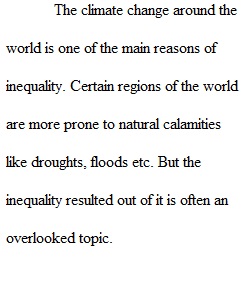


Q Roberts and Parks (2007) argue that global inequality, specifically between the North and the South, directly and indirectly makes international cooperation on climate change policy more difficult. Do you believe that global inequality explains the relative lack of international agreements on climate change? Or does something else render states unable to negotiate effectively on this issue, like economic self-interest or skepticism towards climate science? Can states overcome these obstacles and if so, how? Even more basically, should climate change even be on states' foreign policy agendas?
View Related Questions